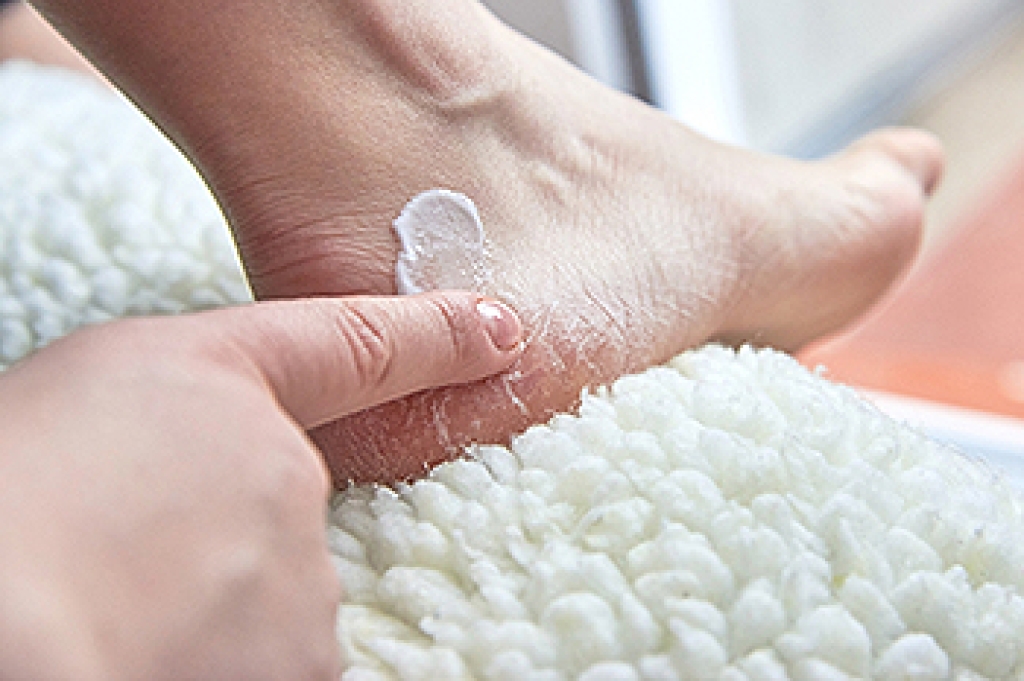Cracked heels, or heel fissures, can develop when skin on the heel dries out and becomes callused. This dried out skin can then crack when weight placed on the heel causes the fat pad under the heel to spread out. If these cracks are left untreated, they can deepen to the point where they bleed or even become infected. This is not only painful, but can be very dangerous—especially for individuals with diabetes. Certain factors—along with having dry, thickened skin—can contribute to the formation of cracked heels, such as standing for prolonged periods of time, going barefoot, wearing open-backed shoes, and carrying extra weight. Also, diabetes, hypothyroidism, atopic dermatitis, psoriasis, and other conditions that can cause dry skin can be associated with cracked heels. Sometimes, cracked heels can be lessened by using topical water-retaining creams. If your cracked heels do not improve with regular moisturizing, if they are deep or bloody, or if you have diabetes, it is suggested that you seek professional treatment from a podiatrist.
If the skin on your feet starts to crack, you may want to see a podiatrist to find treatment. If you have any concerns, contact one of our podiatrists from Barry University Foot and Ankle Institute. Our doctors can provide the care you need to keep you pain-free and on your feet.
Cracked Heels
It is important to moisturize your cracked heels in order to prevent pain, bleeding, and infection. The reason cracked heels form is because the skin on the foot is too dry to support the immense pressure placed on them. When the foot expands, the dry skin on the foot begins to split.
Ways to Help Heal Them
- Invest in a good foot cream
- Try Using Petroleum Jelly
- Ease up on Soaps
- Drink Plenty of Water
Ways to Prevent Cracked Heels
- Moisturize After Showering
- Skip a Shower
- Keep Shower Water Lukewarm
- Don’t Scrub Your Feet
If you are unsure how to proceed in treating cracked heels, seek guidance from a podiatrist. Your doctor will help you with any questions or information you may need.
If you have any questions, please feel free to contact our offices located in Miami, North Miami Beach, Miami Beach, and Tamarac, FL . We offer the newest diagnostic and treatment technologies for all your foot care needs.

